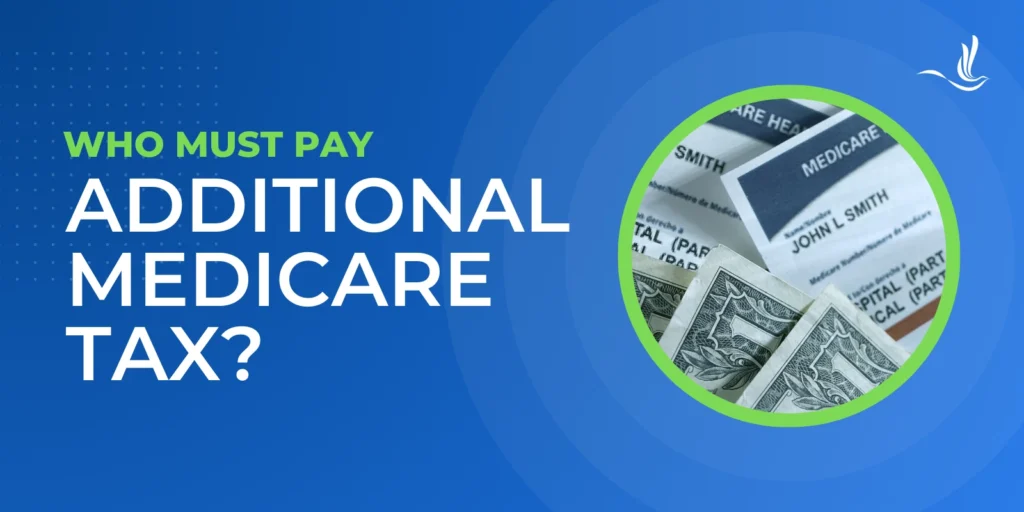
Medicare is a vital program in the United States, providing health insurance coverage to millions of seniors and certain individuals with disabilities. To fund Medicare, various taxes are levied, including the Medicare tax. However, there’s an additional 0.9% Medicare tax that targets higher-income earners. Understanding who must pay this additional tax is crucial for both employees and employers alike.
Who is Subject to Additional Medicare Tax?
The Additional Medicare Tax is an extra tax that certain individuals must pay on top of the regular Medicare tax. This tax came into effect in 2013 as part of the Affordable Care Act (ACA) to pay for free health services, such as vaccines, preventative care, health screenings, as well as some drug coverage costs. The tax applies to earned income, including wages, salaries, tips, and bonuses. It also applies to self-employment income railroad retirement (RRTA) compensation. However, RRTA compensation and wages are not combined to determine the Additional Medicare Tax. The key question then becomes: Who is subject to this additional tax?
Individuals with Higher Incomes
If you earn above a certain threshold from a single employer, you’re liable for the Additional Medicare Tax. As of 2024, the threshold remains the same as it was when the tax was introduced in 2013. For single filers, the threshold is $200,000, and for married couples filing jointly, it’s $250,000. For married couples filing separately, the threshold is $125,000. If your income exceeds these thresholds, you’re subject to the additional 0.9% tax.
How is the Additional Medicare Tax Withheld?
Employers play a crucial role in ensuring the correct withholding of the Additional Medicare Tax for their employees. When an employee’s wages reach $200,000 in a calendar year, the employer must withhold an additional 0.9% on all earnings above that threshold. However, this withholding is only applicable to Medicare wages. Medicare wages include total wages minus some benefit deductions, including insurance premiums, health savings account contributions, and dependent care FSA contributions. Employers will withhold regardless of your filing status and even if you won’t need to pay the additional Medicare tax during tax time.
Self-employed individuals are responsible for paying the entire Additional Medicare Tax themselves. This means they need to calculate and remit the tax on their own when filing their income tax return. For self-employed individuals, the threshold is based on their net self-employment income rather than gross income. Finally, taxpayers should note that the Additional Medicare Tax is not deductible.
Examples
Let’s say Spouse A earned $210,000 and Spouse B earned $20,000 in a year. Their joint income would be $230,000. While this amount does not meet the joint filing threshold of $250,000, Spouse A would still have the additional Medicare tax withheld once they’ve earned $200,000. Any additional taxes withheld are applied to their taxes when they file their return.
Now, let’s say Spouse A earned $180,000 and Spouse B earned $100,000. Their combined income of $280,000 is over the joint filing threshold. However, neither would get the chance to have the additional Medicare tax withheld. In this case, they would need to make estimated tax payments or request additional withholding from their employer on their Form W-4.
Importance of Compliance
It’s essential for both employees and employers to understand and comply with the regulations regarding the Additional Medicare Tax. Failure to withhold or pay the correct amount of tax can result in penalties and interest charges. Employers must ensure accurate payroll withholding, while self-employed individuals need to calculate and remit the tax correctly to avoid any issues with the IRS.
Tax Help for High-Income Earners
The Additional Medicare Tax is aimed at ensuring higher-income individuals contribute more to the Medicare program. It applies to both employees and self-employed individuals whose earnings exceed certain thresholds. Understanding who must pay this tax and how it’s calculated is crucial for complying with tax obligations and avoiding penalties. Employers and employees alike must ensure accurate withholding, while self-employed individuals should carefully calculate and remit the tax when filing their returns. Compliance with the Additional Medicare Tax regulations helps support the sustainability of the Medicare program for future generations. Optima Tax Relief has a team of dedicated and experienced tax professionals with proven track records of success who may be able to help with your state tax issues.
If You Need Tax Help, Contact Us Today for a Free Consultation